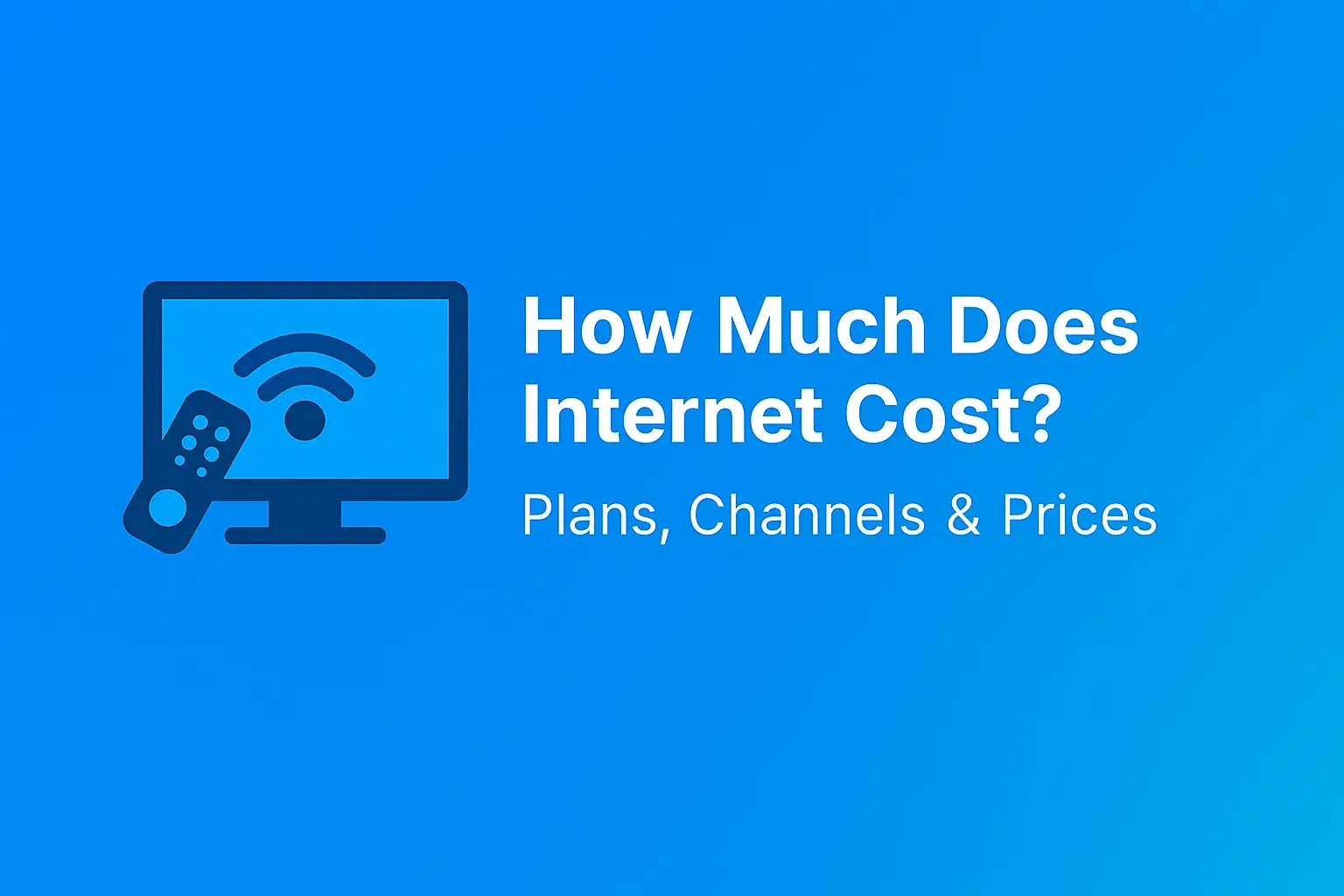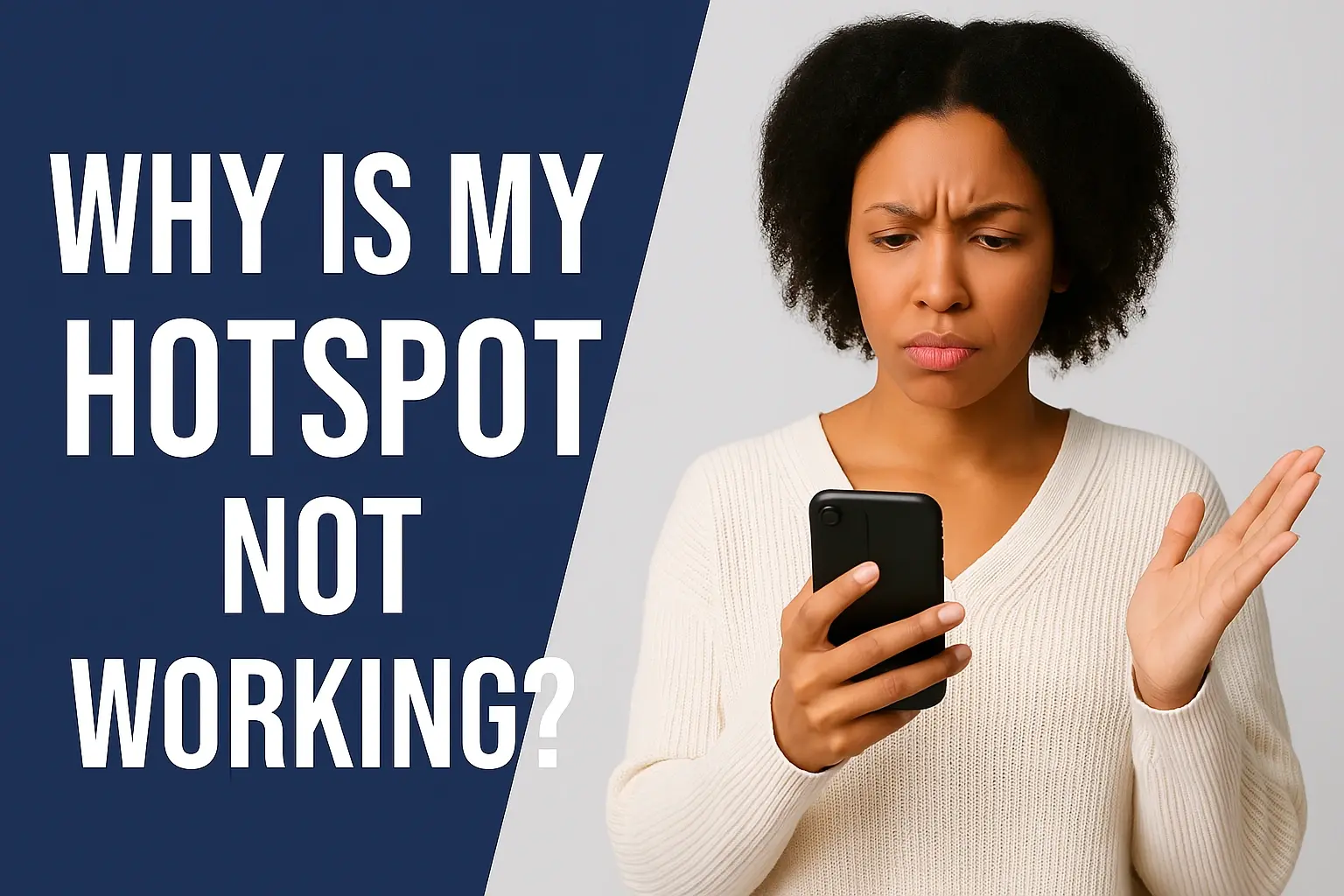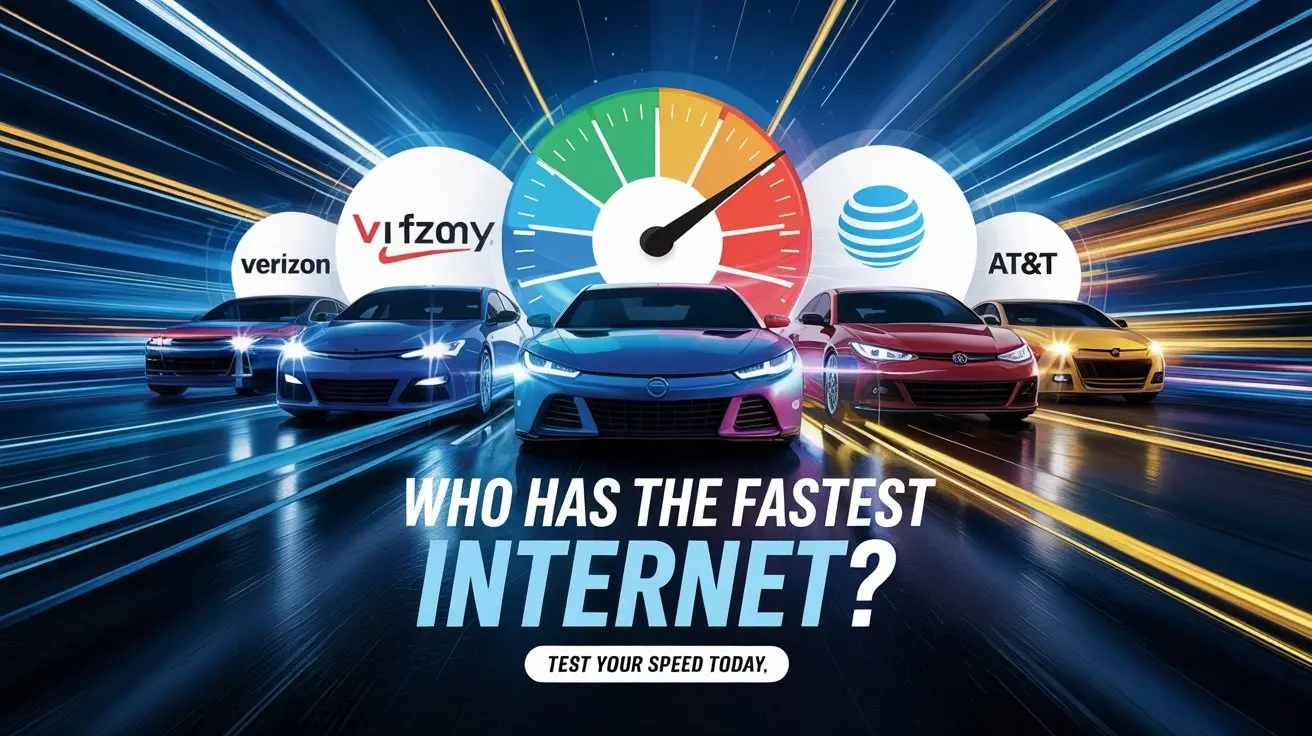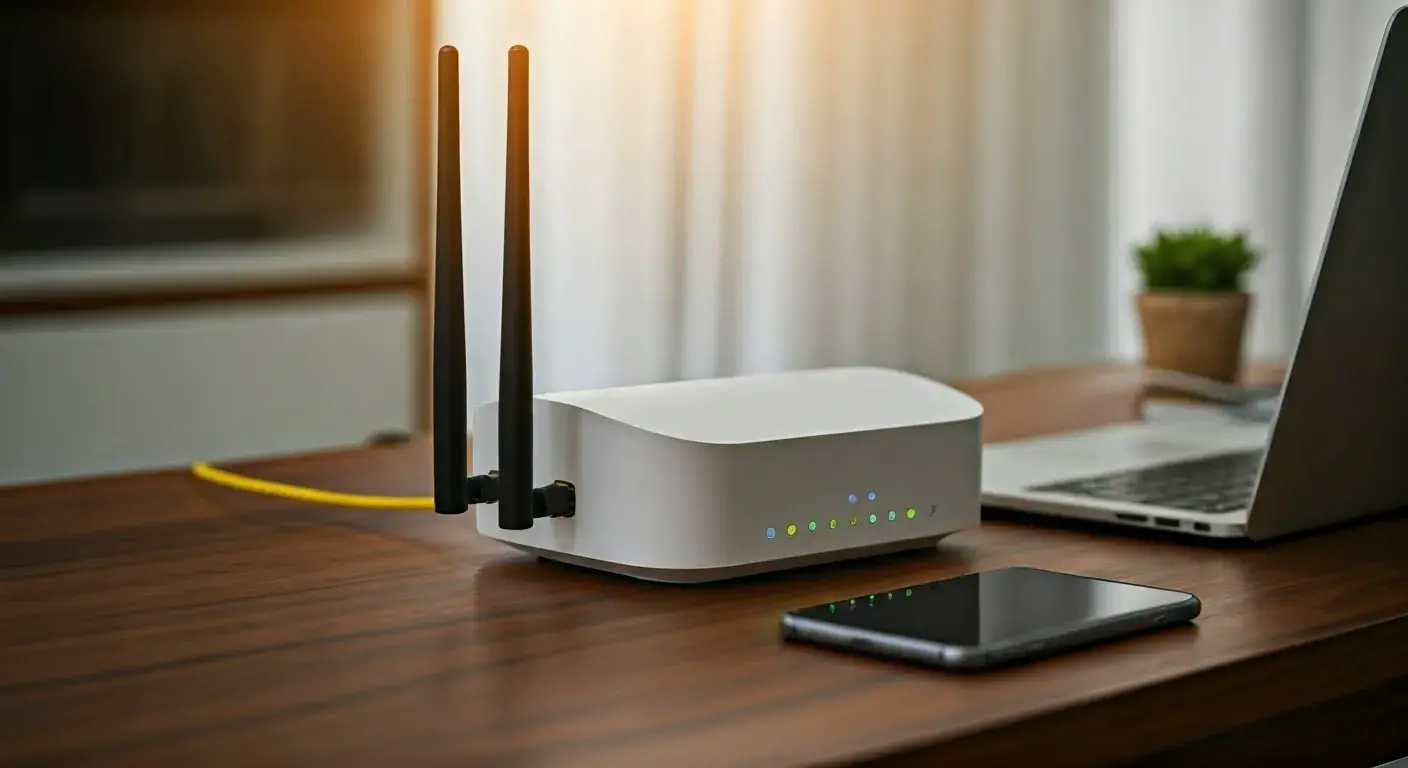Is throttling illegal?

Understanding whether internet throttling is illegal is crucial for consumers and businesses alike. This in-depth guide clarifies the legal landscape surrounding data speed limitations, examining regulations, provider practices, and consumer rights in 2025. Discover what constitutes illegal throttling and how to protect yourself.
What is Internet Throttling?
Internet throttling refers to the intentional slowing down of your internet connection by your Internet Service Provider (ISP). This can manifest in various ways, from a general reduction in speed to specific limitations on certain types of traffic, applications, or websites. ISPs may implement throttling for several reasons, including managing network congestion, enforcing data caps, or differentiating between service tiers. While some forms of throttling are considered legitimate network management practices, others can be deceptive or violate consumer protection laws, leading to the common question: is throttling illegal?
Understanding the nuances of throttling is essential for consumers who rely on consistent and reliable internet access for work, education, entertainment, and communication. In 2025, with the increasing reliance on high-bandwidth activities like streaming, online gaming, and remote work, any deliberate slowdown can significantly impact user experience and productivity. This guide will delve into the legal aspects, common practices, and consumer recourse available when faced with internet speed reductions.
Network Management vs. Deceptive Practices
At its core, the legality of throttling hinges on whether it's a transparent and reasonable network management practice or a deceptive tactic designed to mislead consumers or unfairly disadvantage certain services. ISPs often argue that throttling is necessary to ensure a stable and equitable experience for all users, especially during peak hours. However, critics point out that this can be used to favor their own streaming services or disadvantage competitors.
The line between acceptable network management and illegal throttling can be blurry. It often depends on the transparency of the ISP's policies, the consistency of their application, and the impact on consumers. This section will explore these distinctions and set the stage for a deeper dive into the legal frameworks governing these practices.
Is Throttling Illegal? The Legal Landscape in 2025
The question "Is throttling illegal?" doesn't have a simple yes or no answer. Its legality is highly dependent on jurisdiction, the specific circumstances of the throttling, and the transparency of the ISP's practices. In 2025, the legal framework surrounding internet throttling continues to evolve, with regulatory bodies and consumer protection laws playing a significant role in defining what constitutes acceptable versus illegal behavior by ISPs.
Generally, throttling is considered illegal if it is:
- Deceptive: If the ISP advertises a certain speed or service level but consistently fails to deliver it due to undisclosed throttling.
- Discriminatory: If the ISP throttles specific services or applications unfairly, particularly if it benefits their own competing services.
- Non-Transparent: If the ISP does not clearly disclose their throttling policies to consumers.
- Unreasonable: If the throttling is excessively severe or applied in a way that significantly degrades the user experience without a clear and justifiable network management reason.
In many regions, particularly those with strong consumer protection laws and net neutrality principles, ISPs are required to be transparent about their network management practices. Failure to disclose throttling or engaging in discriminatory throttling can lead to significant fines and legal challenges. However, ISPs often have leeway to manage their networks to prevent congestion, which can involve temporary speed reductions for all users during peak times. The key differentiator is usually the intent and transparency behind the action.
Net Neutrality and Its Impact
Net neutrality is a principle that stipulates that ISPs should treat all internet traffic equally, without discriminating or charging differently by user, content, website, platform, application, type of equipment, source address, destination address, or method of communication. The presence or absence of strong net neutrality regulations significantly influences the legality of throttling. In countries or regions with robust net neutrality laws, ISPs face stricter limitations on their ability to throttle specific types of traffic or services.
For instance, in the United States, the Federal Communications Commission (FCC) has had a fluctuating stance on net neutrality. Periods of strong net neutrality rules have generally made discriminatory throttling more difficult for ISPs. Conversely, during periods where these rules are relaxed, ISPs may have more latitude, though they can still be subject to broader consumer protection laws against deceptive practices.
As of 2025, the debate and regulatory landscape around net neutrality remain active globally. Consumers in regions with strong net neutrality protections are more likely to find certain forms of throttling illegal. Conversely, in areas with weaker regulations, the legality often falls back on whether the throttling is disclosed and whether it constitutes a fundamentally deceptive business practice.
Regulatory Bodies and Enforcement
Various regulatory bodies are tasked with overseeing ISP practices and enforcing laws related to internet service. In the United States, the FCC is the primary agency. In Europe, national regulatory authorities and the Body of European Regulators for Electronic Communications (BEREC) play a role. These bodies set guidelines, investigate complaints, and can impose penalties on ISPs found to be in violation of regulations.
Enforcement actions and consumer complaints are crucial in shaping the legal interpretation of throttling. When consumers report issues and regulatory bodies investigate, it can lead to clearer guidelines and stricter enforcement against illegal throttling practices. The effectiveness of these bodies and the resources allocated to them directly impact how rigorously ISPs are held accountable.
Types of Internet Throttling
Internet throttling is not a monolithic concept. ISPs employ various methods, each with different implications for legality and user experience. Understanding these distinctions is vital for identifying potential issues and determining if your connection is being unfairly managed.
Congestion-Based Throttling
This is perhaps the most common and often legally defensible form of throttling. ISPs may temporarily slow down speeds for all users in a particular area when network traffic is exceptionally high, such as during peak evening hours. The goal is to ensure that everyone receives a baseline level of service rather than a few users consuming all available bandwidth. This is generally considered a legitimate network management practice, provided it is applied equitably and not excessively.
Key characteristics:
- Affects all users in a geographic area.
- Typically occurs during peak usage times.
- Aims to prevent complete service outages.
- Often temporary and resolves when congestion eases.
Data Cap Throttling
Many internet plans come with monthly data caps. Once a user exceeds their allocated data allowance, the ISP may significantly reduce their internet speed for the remainder of the billing cycle. This is a contractual agreement between the ISP and the consumer. While the practice itself is generally legal as it's part of the service agreement, the transparency of the data cap and the severity of the speed reduction can be points of contention.
Key characteristics:
- Triggered by exceeding a pre-defined data limit.
- Speeds are reduced until the next billing cycle.
- The terms of the data cap must be clearly disclosed.
- The post-cap speed reduction can be very substantial.
Service or Application-Specific Throttling
This is where the legality becomes more contentious. ISPs may intentionally slow down traffic for specific applications or services, such as video streaming platforms (e.g., Netflix, YouTube), peer-to-peer file sharing, or online gaming. This can be done to manage bandwidth, but it can also be used to disadvantage competing services or to push users towards higher-tier plans that exempt certain traffic from throttling (known as "zero-rating").
Key characteristics:
- Targets particular types of online activity.
- Can be discriminatory if it favors ISP-owned services.
- Often lacks transparency or is hidden in fine print.
- A major concern under net neutrality principles.
Time-of-Day Throttling
Similar to congestion-based throttling, this involves slowing down speeds during specific hours, often during peak evening times. The justification is usually network load management. However, if this throttling is applied inconsistently or disproportionately, or if it's not clearly disclosed, it can be seen as a deceptive practice.
Key characteristics:
- Speed reductions occur at predictable times.
- Often linked to peak network usage.
- Legality depends on transparency and fairness.
Throttling Based on Device Type
In some cases, ISPs might throttle speeds for specific types of devices, such as older modems or devices that are perceived to consume more bandwidth. This is less common but can occur. The legality would again hinge on transparency and whether it's a justifiable network management practice or a way to force hardware upgrades.
Key characteristics:
- Targets specific hardware.
- May be used to encourage equipment upgrades.
- Transparency is crucial for legality.
Understanding these different types helps consumers identify patterns in their internet performance and assess whether their ISP's actions are within legal and ethical boundaries. The following sections will explore the legal frameworks that govern these practices and what rights consumers have.
Key Legal Frameworks and Regulations
The legality of internet throttling is shaped by a complex web of regulations, consumer protection laws, and, in some regions, specific net neutrality rules. These frameworks aim to ensure fair competition, prevent deceptive practices, and protect consumers from unreasonable service limitations.
Consumer Protection Laws
Broad consumer protection laws form a fundamental layer of regulation. These laws typically prohibit deceptive advertising and unfair business practices. For ISPs, this means they cannot advertise speeds or service levels that they do not intend to provide or that they intentionally degrade through undisclosed means. If an ISP's throttling practices are not transparently disclosed in their service agreements or marketing materials, they could be in violation of these laws.
Examples include:
- Truth in Advertising: ISPs must accurately represent the services they offer.
- Unfair or Deceptive Acts or Practices (UDAP): Regulations that prevent businesses from engaging in conduct that misleads or harms consumers.
Net Neutrality Regulations
As discussed earlier, net neutrality rules are critical. Where strong net neutrality principles are enforced, ISPs are generally prohibited from blocking, throttling, or prioritizing internet traffic based on its content, source, or destination. This means ISPs cannot intentionally slow down traffic from a competitor's streaming service while allowing their own to run at full speed.
The status of net neutrality varies significantly by country and even within countries over time. For instance:
- United States: The FCC's approach to net neutrality has shifted. In periods where Title II classification for broadband is in effect, stronger net neutrality rules apply, making discriminatory throttling more likely to be deemed illegal.
- European Union: The EU has established net neutrality regulations that generally prohibit blocking and throttling, with limited exceptions for network management that must be transparent and non-discriminatory.
- Other Regions: Many other countries have their own specific laws or are in the process of developing them.
In 2025, the ongoing debate and policy changes around net neutrality continue to shape the legality of ISP throttling practices globally.
Data Privacy and Transparency Laws
While not directly about throttling, data privacy and transparency laws can indirectly influence ISP behavior. Regulations like the GDPR in Europe or similar privacy laws elsewhere require companies to be transparent about how they collect and use data, and how services are managed. If an ISP's throttling practices involve analyzing user data to selectively slow down certain activities, they must comply with these transparency requirements.
Key aspects include:
- Disclosure of data usage policies: ISPs should be clear about what data they monitor and how it influences service.
- Transparency in network management: Policies regarding traffic shaping and speed adjustments must be readily accessible and understandable to consumers.
Antitrust and Competition Laws
In situations where an ISP might throttle services from a competitor to gain an advantage for its own services, antitrust and competition laws can come into play. These laws are designed to prevent monopolies and ensure a level playing field for businesses. If an ISP's throttling practices are found to be anti-competitive, they could face legal action under these statutes.
Case Studies and Regulatory Actions (2025)
To illustrate the practical application of these laws, consider hypothetical or actual regulatory actions in 2025. For example, a regulatory body might investigate an ISP for allegedly throttling video streaming services during peak hours, especially if the ISP also offers its own competing streaming service. If the investigation reveals that the throttling was not transparently disclosed, disproportionately affected specific services, or was not a necessary measure for network management, the ISP could face fines or be ordered to change its practices.
Conversely, an ISP that clearly states in its terms of service that speeds may be reduced during peak congestion or after exceeding a data cap, and applies these policies consistently and fairly, is less likely to face legal repercussions for those specific actions.
The evolving legal landscape means that what was permissible in previous years might not be in 2025, and vice versa. Staying informed about regulatory updates and enforcement actions is crucial for understanding the current legality of ISP throttling.
Understanding Your Consumer Rights
As an internet consumer, you have rights regarding the service you pay for. Understanding these rights is the first step in addressing potential issues with internet throttling. These rights are often enshrined in consumer protection laws, service agreements, and regulatory guidelines.
Right to Accurate Information
You have the right to receive accurate information about the internet service you are purchasing. This includes advertised speeds, data caps, and any potential limitations or policies regarding network management, such as throttling. Your ISP should clearly disclose these terms before you sign up for a service.
This means:
- Advertised speeds should be achievable under normal conditions.
- Any conditions that might lead to reduced speeds (like data caps or peak hour management) must be clearly stated.
- The terms of service should be easily accessible and understandable.
Right to Consistent Service
While ISPs are allowed to manage their networks, you have a right to receive a reasonably consistent level of service as advertised, barring legitimate and transparent network management practices. If your internet speed is consistently much lower than advertised, or if it fluctuates dramatically without clear cause, you may have grounds to complain.
This right is often interpreted as:
- Receiving speeds that are within a reasonable range of the advertised speed.
- Experiencing minimal unjustified slowdowns.
- Having your service function as expected for typical internet activities.
Right to Fair Network Management
ISPs have the right to manage their networks to ensure stability and availability for all users. However, this management must be fair and non-discriminatory. You have the right to expect that your ISP is not unfairly targeting specific applications or services for throttling, especially if it benefits their own offerings.
Fair network management typically implies:
- Throttling is applied neutrally across all users and services, or clearly defined exceptions are disclosed.
- Throttling is a necessary measure to address network congestion or other technical issues, not a tool for anti-competitive behavior.
- Any traffic shaping is done in a way that does not unduly harm consumer choice or innovation.
Right to Seek Resolution
If you believe your ISP is engaging in illegal or unfair throttling, you have the right to seek resolution. This typically starts with contacting your ISP's customer support to report the issue. If that doesn't resolve the problem, you can escalate your complaint to regulatory bodies or consumer protection agencies.
Steps for seeking resolution often include:
- Documenting the issue: Keep records of speed tests, times of slowdowns, and communications with your ISP.
- Filing a formal complaint: Lodge a complaint with your ISP's official complaint department.
- Contacting regulatory authorities: Report the issue to the relevant telecommunications regulator or consumer protection agency in your region.
- Exploring legal options: In some cases, individual or class-action lawsuits may be an option.
Impact of Zero-Rating and Paid Prioritization
Your rights are also affected by practices like zero-rating (where certain data usage doesn't count against your data cap) and paid prioritization (where content providers can pay ISPs to have their traffic delivered faster). These practices can indirectly lead to throttling of services that are not zero-rated or do not pay for prioritization, even if the ISP doesn't explicitly throttle them. Consumers have a right to understand how these practices affect their overall internet experience and costs.
Understanding these rights empowers you to question your ISP's practices and take appropriate action if you suspect unfair treatment. The following section provides practical steps on how to identify and prove throttling.
How to Detect and Prove Throttling
Detecting and proving internet throttling can be challenging, as ISPs often employ sophisticated methods to manage traffic. However, by employing a systematic approach and utilizing available tools, you can gather evidence to support your claims.
Perform Speed Tests Consistently
Regular speed tests are your primary tool. However, it's crucial to perform them correctly:
- Use reputable speed test websites: Websites like Speedtest.net (Ookla), Fast.com (Netflix), and Google's speed test are reliable. Fast.com is particularly useful as it specifically tests Netflix streaming speeds, which are often a target for throttling.
- Test at different times: Conduct tests during peak hours (evenings, weekends) and off-peak hours (late night, early morning). Significant drops during peak times could indicate congestion-based throttling, while consistent low speeds could point to other issues.
- Test different types of traffic: Use speed tests that measure download, upload, and ping. Also, test specific applications if you suspect they are being throttled.
- Use a wired connection: Connect your computer directly to your router via an Ethernet cable to eliminate Wi-Fi interference as a variable.
- Test multiple devices: If possible, test speeds on different devices to rule out device-specific issues.
Analyze Your ISP's Terms of Service
Thoroughly read your ISP's Terms of Service (ToS) and Acceptable Use Policy (AUP). Look for clauses related to:
- Network management practices: Do they mention traffic shaping, speed adjustments during peak hours, or data caps?
- Data caps and overage charges: Understand your data allowance and what happens when you exceed it.
- Prohibited activities: Some ISPs may throttle certain activities if they are deemed to consume excessive bandwidth unfairly.
If the throttling you are experiencing aligns with disclosed policies, it might be legal. If it contradicts or goes beyond what's stated, it strengthens your case.
Monitor Application Performance
If you suspect specific applications are being throttled, monitor their performance directly:
- Streaming services: Pay attention to buffering, lower video quality, and longer loading times. Fast.com can give you a direct indication of Netflix throttling.
- Online gaming: High ping (latency) and packet loss are indicators of network issues, which could include throttling.
- Video conferencing: Poor audio and video quality, frequent disconnections.
Use Network Monitoring Tools
Advanced users can employ network monitoring tools to gain deeper insights:
- Wireshark: A powerful network protocol analyzer that can help identify traffic patterns and potential throttling. This requires technical expertise.
- VPNs (Virtual Private Networks): Testing your speed with and without a VPN can sometimes reveal throttling. If your speed improves significantly when using a VPN (which encrypts your traffic and masks its nature from your ISP), it might suggest your ISP is throttling specific types of unencrypted traffic. However, note that VPNs themselves can also slow down your connection.
Gather Evidence and Documentation
Crucial for any complaint or legal action:
- Screenshots: Take screenshots of your speed test results, noting the date, time, and website used.
- Logs: Keep a log of when you experience slowdowns, what you were doing online, and the corresponding speed test results.
- ISP Communications: Save all emails, chat logs, and records of phone calls with your ISP regarding your internet speed issues.
- Witnesses: If other users on your network experience similar issues, their testimony can be valuable.
Compare with Advertised Speeds and Competitors
Compare your consistent test results with the speeds advertised in your plan. Also, if possible, check the speeds of neighbors or businesses using different ISPs in your area to see if the issue is specific to your provider.
By systematically collecting this data, you can build a strong case to present to your ISP or regulatory bodies if you suspect illegal throttling. The next section will guide you on what steps to take once you have gathered this evidence.
What to Do If You Suspect Illegal Throttling
Discovering that your ISP might be illegally throttling your internet connection can be frustrating. Fortunately, there are several steps you can take to address the situation, from direct communication with your ISP to escalating your complaint to regulatory authorities.
Step 1: Contact Your ISP Directly
Before escalating, always try to resolve the issue with your ISP first. This is often a required step before filing a formal complaint with a regulator.
- Prepare your evidence: Have your speed test results, logs of slowdowns, and records of previous communications ready.
- Be specific: Clearly explain the problem, including when it occurs, what types of activities are affected, and how it differs from advertised speeds.
- Reference your terms of service: If you believe their actions violate their own policies or consumer protection laws, mention this politely.
- Request a technician visit: If the issue persists, ask for a technician to check your line and equipment.
- Document the interaction: Note the date, time, representative's name, and what was discussed or agreed upon.
Step 2: File a Formal Complaint with Your ISP
If informal attempts to resolve the issue fail, submit a formal written complaint. This creates a clear record of your grievance.
- Use their official complaint channel: Many ISPs have a dedicated process for formal complaints, often found on their website.
- Include all gathered evidence: Attach screenshots, logs, and any other supporting documents.
- State clearly what resolution you seek: Do you want the throttling stopped, a refund, or compensation for damages?
- Keep a copy: Retain a copy of your complaint and any response received.
Step 3: Escalate to Regulatory Bodies
If your ISP does not provide a satisfactory resolution, your next step is to contact the relevant regulatory authorities. The specific body depends on your location.
- United States: File a complaint with the Federal Communications Commission (FCC). The FCC has a consumer complaint portal.
- European Union: Contact your national regulatory authority (e.g., Ofcom in the UK, ARCEP in France, BNetzA in Germany). BEREC (Body of European Regulators for Electronic Communications) provides guidance and coordination.
- Other Countries: Research the telecommunications or consumer protection agency responsible for internet services in your country.
When filing with a regulator, provide all your documented evidence and a summary of your attempts to resolve the issue with your ISP.
Step 4: Consider Consumer Advocacy Groups
Consumer advocacy organizations can offer advice, support, and sometimes even legal assistance. They may also be able to highlight systemic issues with ISPs, leading to broader investigations or policy changes.
Step 5: Explore Legal Options
In cases of significant damages or widespread deceptive practices, legal action might be considered.
- Small Claims Court: For smaller amounts of compensation, you might be able to pursue a case in small claims court.
- Class-Action Lawsuits: If many consumers are affected by the same illegal throttling practices, a class-action lawsuit may be filed. This is often initiated by legal firms specializing in consumer rights.
- Consult an Attorney: If you believe you have a strong case for damages, consult with an attorney specializing in consumer law or telecommunications law.
Important Considerations
Be Patient: Resolving these issues can take time. Regulatory processes and legal proceedings are often lengthy.
Stay Informed: Keep up-to-date with changes in regulations and consumer protection laws related to internet services in your region.
Community Action: If you find others experiencing similar problems, consider organizing or joining efforts to collectively address the issue with your ISP or regulators.
By following these steps, you can effectively challenge suspected illegal throttling and work towards restoring the internet service you are entitled to. The following section looks at the future of these practices.
The Evolving Future of Internet Throttling
The landscape of internet throttling is constantly shifting, influenced by technological advancements, evolving regulatory frameworks, and changing consumer expectations. As we look ahead, several trends suggest how throttling practices might evolve and what consumers can anticipate in the coming years.
Increased Transparency and Regulation
Consumer demand for transparency is growing, and regulatory bodies are increasingly scrutinizing ISP practices. In 2025 and beyond, we can expect:
- Stricter disclosure requirements: ISPs will likely face mandates to clearly and simply disclose all forms of throttling, including those related to specific applications or network management.
- More robust enforcement: Regulators may increase fines and penalties for non-compliant ISPs, making illegal throttling a more significant financial risk.
- Data-driven oversight: Advanced analytics and data reporting requirements could give regulators better insights into ISP network management practices.
Impact of 5G and Advanced Networks
The rollout of 5G and future advanced wireless technologies promises higher speeds and lower latency. However, these networks also present new challenges and opportunities for throttling:
- Network slicing: 5G allows for network slicing, where different parts of the network can be optimized for specific use cases (e.g., low latency for gaming, high bandwidth for video). This could lead to more sophisticated, but potentially discriminatory, forms of traffic management.
- Increased bandwidth demands: As more devices and applications leverage these new networks, the pressure on bandwidth will continue, potentially leading ISPs to implement more aggressive management strategies.
- Fixed Wireless Access (FWA): 5G-based FWA is becoming a viable alternative to traditional broadband. ISPs offering FWA may employ throttling strategies similar to cable or fiber providers.
AI and Algorithmic Throttling
Artificial intelligence (AI) is increasingly being used to manage complex networks. This could lead to more dynamic and sophisticated throttling:
- Predictive throttling: AI could predict network congestion and proactively adjust speeds based on complex algorithms.
- Granular control: AI might enable ISPs to throttle individual users or specific types of data packets with unprecedented precision.
- Potential for bias: The algorithms used could inadvertently or intentionally discriminate against certain traffic, raising new legal and ethical questions.
Consumer Empowerment and Tools
As technology advances, so do the tools available to consumers:
- Sophisticated monitoring apps: More user-friendly and powerful applications will emerge to help consumers detect and report throttling.
- Decentralized networks and alternatives: Exploration of alternative internet access models, potentially less reliant on traditional ISPs, could grow.
- Greater awareness: Increased public discourse and educational resources will empower consumers to understand their rights and demand better service.
The Ongoing Debate on Zero-Rating and Paid Prioritization
Practices like zero-rating and paid prioritization will continue to be a focal point of debate. Advocates for net neutrality argue these practices undermine a free and open internet, while ISPs contend they offer flexibility and innovation. Future regulations will likely attempt to strike a balance, potentially allowing some forms of differentiated service while prohibiting those that stifle competition or harm consumers.
The future of internet throttling will be shaped by the interplay of technological innovation, regulatory action, and consumer advocacy. While ISPs will continue to manage their networks, the emphasis is increasingly shifting towards ensuring these practices are transparent, fair, and legal, protecting the principles of an open and accessible internet for everyone.
Conclusion
The question "Is throttling illegal?" remains complex, with its legality contingent upon specific circumstances, jurisdictional regulations, and the transparency of ISP practices. In 2025, while ISPs retain the right to manage their networks to prevent congestion and ensure service availability, this management must be conducted ethically and within legal boundaries. Deceptive practices, undisclosed throttling, and discriminatory speed reductions that favor an ISP's own services are generally considered illegal and are subject to regulatory scrutiny and consumer protection laws.
Understanding the different types of throttling, from congestion-based to data cap limitations, is crucial for consumers. Equally important is knowing your rights, which include the right to accurate information, consistent service, and fair network management. By diligently performing speed tests, analyzing terms of service, and documenting any discrepancies, you can gather the evidence needed to challenge suspected illegal throttling.
If you believe your ISP is engaging in illegal throttling, the recommended course of action involves a tiered approach: first, attempt to resolve the issue directly with your ISP, then file a formal complaint, and if necessary, escalate to regulatory bodies or consumer advocacy groups. The future of internet throttling will likely see increased transparency and stricter regulations, driven by technological advancements and growing consumer awareness. Staying informed and proactive is key to ensuring you receive the internet service you pay for.





